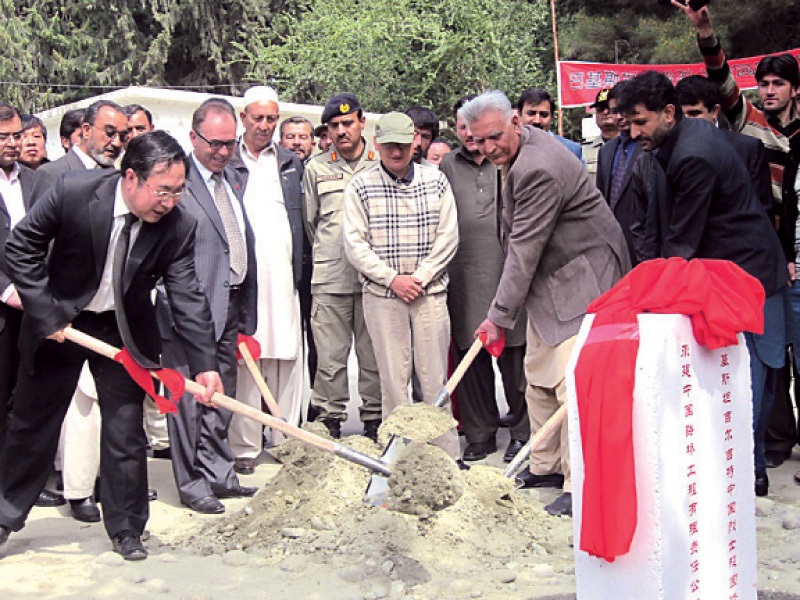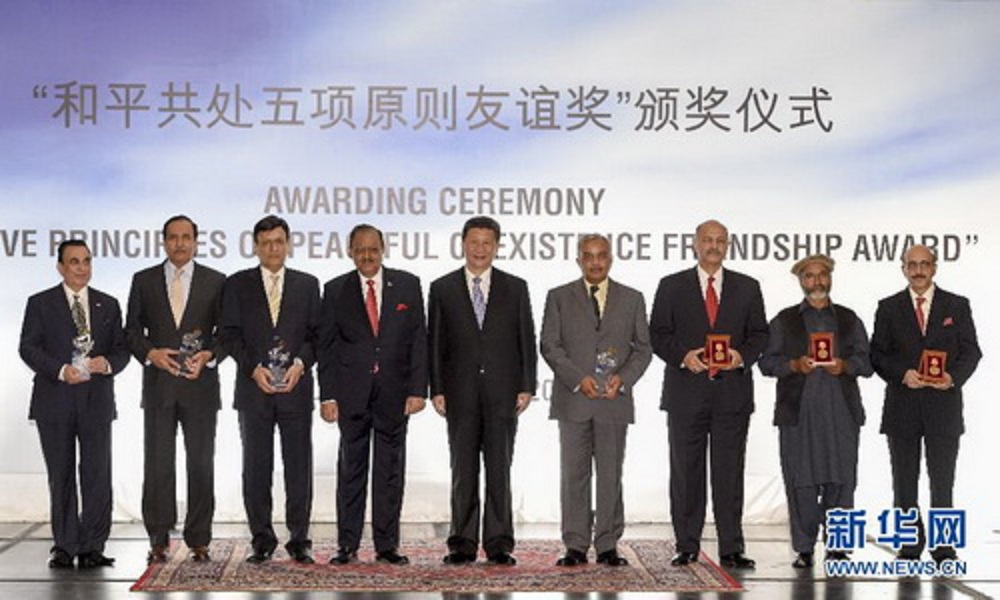Written by: Waseem Abbas
Posted on: March 02, 2023 |  | 中文
| 中文
Graves at the Chinese Graveyard in Danyor, Gilgit
The Karakoram Highway (KKH) is the forerunner of the China-Pakistan Economic Corridor (CPEC), which transformed the road connectivity between Pakistan and China. The 1300 kilometers long highway starts in China's Xinjiang province, passes through Gilgit Baltistan, and ends in Hasan Abdal, Punjab. The KKH, also known as the eighth wonder of the world, was jointly constructed by Pakistani and Chinese engineers and workers. The construction of the 1300 kilometers long road cutting through the mighty mountains of the Karakoram and Hindukush was started in 1959, and completed in 1977. The Pakistani section of the KKH (around 887 kilometers), which reaches an altitude as high as 4700 meters, claimed the lives of 778 Pakistani and 110 Chinese workers, mainly in landslides, avalanches and blasts. Most of the Chinese workers who lost their lives during the construction of the KKH were laid to rest in Pakistan. One such popular cemetery of Chinese workers is in Danyor, Gilgit, locally known as ‘China Yadgar’.
‘China Yadgar’ (The Chinese graveyard) is located adjacent to the Karakoram highway in Danyor, a town approximately 8 kilometers from the city of Gilgit. It was constructed in the early ‘1970s in Danyor, an ideal location, for it was located between Hunza-Nagar and Diamer-Kohistan regions, the most difficult and dangerous terrains through which the KKH passes. The land for the 17,000-square-foot graveyard was bought by the Chinese government when the Karakoram Highway’s construction began in 1966. The graveyard has four equal-sized quarters with 27 graves in each, and it has a total of 108 graves, 20 of which are still empty. The reason for these blank/empty graves is to honor those workers whose bodies couldn't be retrieved from the debris, or those who drowned in river. Each grave contains a round-sized tombstone and an epitaph in Mandarin Chinese, listing the name and other relevant details of the deceased.
The cemetery is looked after by the custodians appointed by the government of China, who provide basic information about the graveyard to the tourists. As one enters the graveyard through the main gate, both sides of the pathway are adorned by photographs from the times of the KKH’s construction, of Chinese workers, and other Chinese activities in the region. A big brownish concrete plaque on the right side of the main entrance provides basic information about the Karakoram Highway in English, Urdu and Mandarin Chinese. The main memorial tower of the graveyard, situated just a few meters in front of the main gate, is accessible by stairs and has a lime-white structure with Chinese inscriptions in red. It is surrounded by alpine trees and has stairs on all sides.
The cemetery was renovated in 2013 and transformed into a Chinese Memorial Park, aimed at displaying historic photographs and providing information. The cemetery remains a tourist attraction site for both Chinese and locals throughout the year. Locals visit it frequently on vocations, at the time of Eid and Nauroz, while Chinese tourists and the families of the Chinese buried in the cemetery also frequently visit the graveyard. A group of retired Chinese soldiers, relatives of those buried in the cemetery, and a few Chinese journalists visited the graveyard to pay their homage in 2011. The delegation met the then-ambassador of Pakistan to China, Masood Khan, and it was widely publicized in Chinese media. The long alpine trees, flowers and roses add to the aesthetics of the memorial park.

Chinese and Pakistan officials laying the foundation of renovation work of the cemetery in 2013 (Pic credits to Express Tribune)
The cemetery has a long history and it has now been portrayed in many documentaries, dramas and films. The 2017 Lollywood film “Chalay Thay Sath”, starring Syra Yusuf, Kent S Leung and Behroz Sabzwari, revolves around a cross-border love story between a Pakistani girl (played by Syra) and a Chinese man (played by Leung), who is shown to visit Pakistan to pay homage at his father’s grave at the Chinese graveyard in Danyor. The scene where the hero and heroine meet for the first time has been shot at the very same graveyard.
The guardian of the graveyard, Ali Ahmed, who voluntarily guarded the cemetery for over thirty-seven years, was awarded the Five Principles of Peaceful Coexistence Friendship Award by the Chinese President Xi Jinping in 2015, during his official visit to Pakistan. The Chinese president shook hands with Ali Ahmed, congratulated him, and thanked him for his services. He was later taken to China and Singapore on a thanksgiving visit, and CGTN has made a mini-documentary about him.
The Pakistan-China friendship that is popularly referred to as 'taller than the mountains, deeper than the oceans, stronger than steel, sweeter than honey’, owes its existence to the sacrifices of those who laid their lives in the construction of the Karakoram Highway. Both countries are doing well to honor their services posthumously, and preserving their resting place in the Chinese Graveyard in Danyor, Gilgit.

The custodian of the cemetery, Ali Ahmed, second from right, with Chinese and Pakistani presidents in 2015
You may also like: